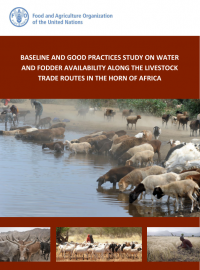Location
Vision, mission and strategy
ILRI's strategy 2013-2022 was approved in December 2012. It emerged from a wide processof consultation and engagement.
ILRI envisions... a world where all people have access to enough food and livelihood options to fulfil their potential.
ILRI’s mission is... to improve food and nutritional security and to reduce poverty in developing countries through research for efficient, safe and sustainable use of livestock—ensuring better lives through livestock.
ILRI’s three strategic objectives are:
- with partners, to develop, test, adapt and promote science-based practices that—being sustainable and scalable—achieve better lives through livestock.
- with partners,to provide compelling scientific evidence in ways that persuade decision-makers—from farms to boardrooms and parliaments—that smarter policies and bigger livestock investments can deliver significant socio-economic, health and environmental dividends to both poor nations and households.
- with partners,to increase capacity among ILRI’s key stakeholders to make better use of livestock science and investments for better lives through livestock.
This is ILRI’s second ten-year strategy. It incorporates a number of changes, many based on learning from the previous strategy (2000–2010, initially produced in 2000 and modified in 2002), an interim strategy (2011–2012) and an assessment of the external and internal environments in which the institute operates.
Members:
Resources
Displaying 96 - 100 of 1152Gender and the commons: Pastoral women’s land rights and village land use planning in Tanzania: Experiences from the sustainable rangeland management project
In pastoral societies women face many challenges. Some describe these as a ‘double burden’ –
that is, as pastoralists and as women. However, pastoral women may obtain a significant degree
of protection from customary law even if customary institutions are male-dominated. In periods
of change (economic, social, political), this protection may be lost, and without protection from
statutory laws, women are in danger of “falling between two stools” (Adoko and Levine 2009). A
Water and fodder availability along livestock trade routes in the Horn of Africa
Poor livestock keepers: ecosystem–poverty–health interactions
Humans have never been healthier, wealthier or more numerous. Yet, present success may be at the cost of future prosperity and in some places, especially in sub-Saharan Africa, poverty persists. Livestock keepers, especially pastoralists, are over-represented among the poor. Poverty has been mainly attributed to a lack of access, whether to goods, education or enabling institutions. More recent insights suggest ecosystems may influence poverty and the self-reinforcing mechanisms that constitute poverty traps in more subtle ways.



